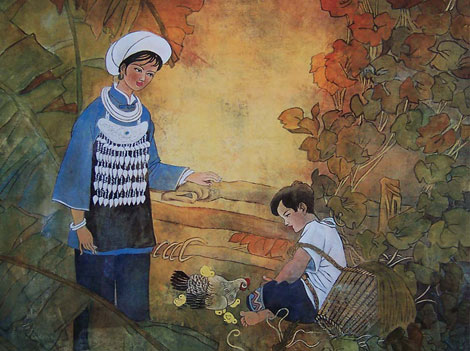
The Shui population is 345,993. Most of them live in Sandu Shui Autono-mous County of Qiannan Buyi-Miao Au?tonomous Prefecture, Libo, Duyun, Dushan, and Kaili, Liping Rongjiang, Congjiang counties of Qiandongnan Miao-Dong Autonomous Prefecture. A few scattered in the Guangxi Zhuang Autonomous Region.
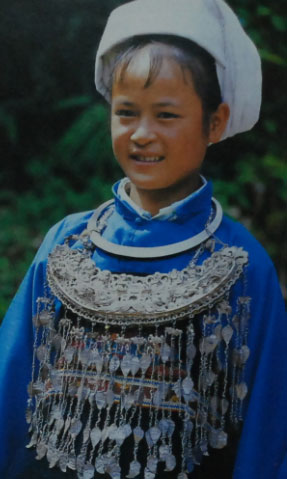
A Shui woman wearing elaborate ornaments on her chest.
The Shuis make their homes in the south of Miaoling Mountains, southeast of the Yunnan-Guizhou Plateau and the up?per reaches of the Duliu and Longjiang rivers. The picturesque land, covered with lush forests, is arable for farming and for?estry and has been developed into a gra?nary and fish pond of Guizhou Plateau.
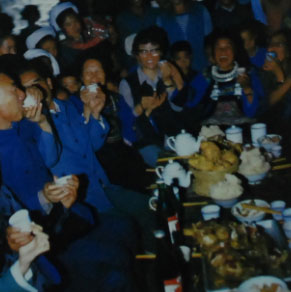
Sharing a bowl of liquor to celebrate the Duan Festival.
The Shuis plough hard in paddy year after year. Their best wine is called "Jiuqiansa".
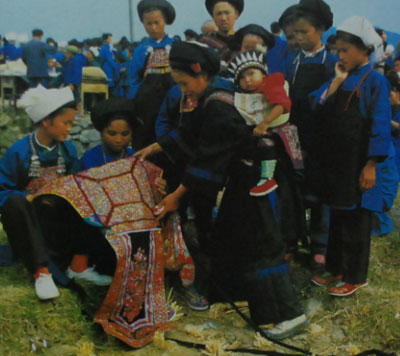
Shui women embroider beautiful straps for carrying baby.
Ancestors of the Shuis made up a branch of the ancient Baiyue people. In the Tang and Song dynasties, they were gen?erally called the Liaos together with the Zhuang and Dong peoples. In the Northern Song period, Fushui Prefecture was set up in the Shui area. The name Shui for the first time appeared in the historical docu?ments of the Ming Dynasty. In the Qing Dynasty they were known as "Shuijiamiao" or "Shuijia". After the founding of new China, they were officially called the Shui Nationality.
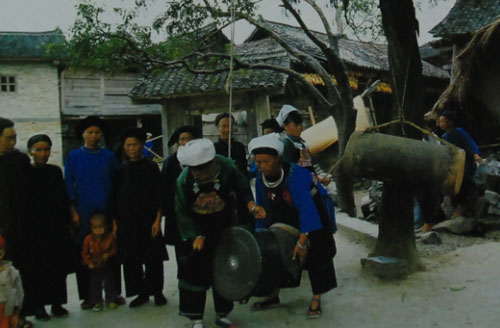
A bronze durm is often used during festivals and ceremonies.
The Shui language belongs to the Dong-Shui branch of the Zhuang-Dong group of the Sino-Tibetan family. Ances?tors of the Shuis created a writing system similar to the oracle-bone and bronze scripts of the ancient Hans. However, it only contains more than 400 characters and merely used by wizards. The Shuis have its own calendar, which resembles the lu?nar calendar. But a Shui year ends in the eighth month of the lunar calendar, and begins in the ninth. From the end of the eighth to the tenth months, there are four holidays, which are celebrated by different villages alternately. Celebrating the New Year's Day is called "Jieduan". During this grand festival^ young people play reed pipes and heal bronze drums throughout the night. There are horse races, danc?ing and singing too.





